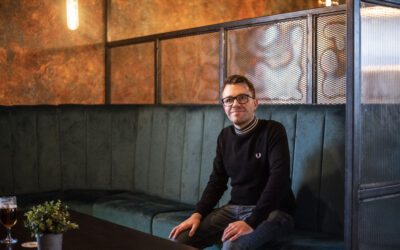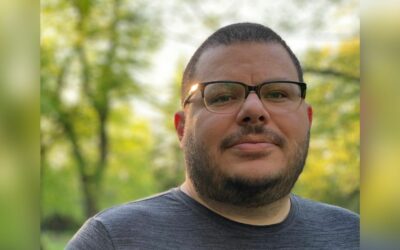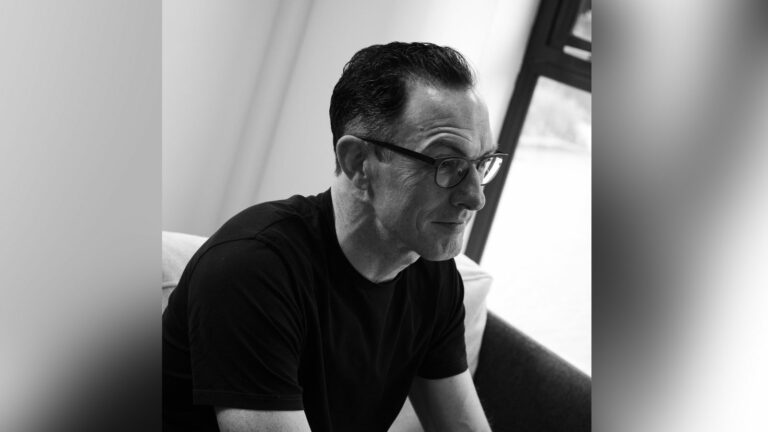Naimuri is a software development and data intelligence company based in Salford.
In 2020, the tech firm was acquired by defence technology company QinetiQ in a deal worth £25m.
Naimuri, which has a mission to make the UK a ‘safer and better place to be’, works in partnership with government and law enforcement organisations on some of the most challenging data and technology problems.
Richard Fallon, Chief Technology Officer and co-founder of Naimuri, shares the lessons he has learnt…
Which single daily habit or practice could you not do without?
I am 100% a creature of routine and habit – my whole day is full of many routines. I like to have an hour to myself before the family wakes (even though I find it hard to get up early), to focus on work/life priorities and set goals. I value that undisturbed time to plan and look ahead.
I have always been into exercise and as I get older, I find I need to do yoga to compensate for the exercise. So every morning I do some form of exercise; running, riding, callisthenics but I now always follow it with yoga. It has really helped with my flexibility and I have become a little addicted to it. I am regularly practising handstands and slowly getting better.
I read every night.
Food wise, I always start the day with porridge (considering entering the world championship for porridge making as I’ve got pretty good at it), always salad for lunch, always followed by mixed nuts and dark chocolate. You begin to get the idea. I have practised the piano every day since lockdown and the habit has stuck. The problem is I rarely stop habits – so when everyone got into sourdough baking during lockdown – well I’m still doing it. I’d like to think I could do without the countless coffees, but that may be my downfall.
What’s been your luckiest break?
I’ve said it a million times but I don’t believe there is any such thing as luck. There is a famous phrase about the ‘harder you work, the luckier you get’, but I feel there is an element of creating your own luck, and making the most of opportunities that present themselves. Luck may be presented in the form of an opportunity and your choices you make determine what happens next.
What’s your best failure?
I would say it was the first company I set up. It was in the early 00s (when I was more excited about wearing trainers to work than anything else!) and we never really earnt a penny from it.
We sold the business (for a ridiculously small sum) to another company, who bought us out of administration. The hardware alone was worth more than what we made! Lessons learnt at that time have stayed with me and influenced what we have built here at Naimuri.
What is the best investment you’ve ever made, either financial or time?
The success of Naimuri has allowed me to be fortunate enough to have a place to escape to in the Lake District. We have access to the water and the hills and time with the kids for walking and riding, which is so important to me.
Which book would you recommend others to read and why?
I think this depends upon the audience, so I have a few varied choices.
- ‘Thinking fast, thinking slow’ is a book by the great psychologist Daniel Kahneman. It is full of interesting facts and backed up by proof, about how the mind works and how humans make decisions. He talks about the ‘Halo effect’ and the impact of making decisions with regards to recruitment, which is something I talk about a lot and has influenced my decision making progress when meeting and recruiting talent. The whole book is rammed with fascinating facts and a real learning curve.
- ‘Hard thing about hard things’ by Ben Horowitz. It is about making decisions in leading a company, but is not your usual airport management self-help book. It is a real-life story about what he actually did to affect problems as they arose. Not theme driven like so many self-help books are.
- ‘Blockchain and the new architecture of trust’ by Kevin Werbach is a pretty amazing read. It is about Blockchain and web3 and describes the ecosystem, without any hype and he shares a really coherent description about a very confusing space.
- Sapiens – because the author explains everything you thought you knew about life in a slightly different narrative. It is incredible.
What one piece of advice would you give your 21-year-old self?
In my early 20s (and my early 30s), I used to think everyone had the answers and knew what they were doing. I was always waiting for someone to hand me something on a plate or give me an answer to a question. This didn’t happen. I learnt as I got older that we’re all kind of making it up as we go along (some better than others!) and not to worry too much about what others are saying or doing. I am pleased with how life has worked out and the lessons I have learnt.
Who or what has had the single biggest influence on your working life?
I think Kent Beck, author of the ‘Extreme Programming’ book. It came out in the 90s and was all about how to run small teams to deliver value quickly. Someone printed a copy of the first chapter off at work and popped it on my desk and I read it on the bus on the way home, went and bought the book and it has influenced me ever since.
At that point in my life I had no concept about what was right or wrong in the world of software delivery projects, I didn’t know what Waterfall was but I just knew the approach specified in the book made a lot of sense to me. Really, I’ve gone and applied it to everything in life: for example breaking big problems into smaller more understandable problems, working openly with others, people over process.
Tell us something about you that would surprise people.
I don’t have any surprises.
How will the COVID crisis change work for the better?
We’ve always had a super culture here at Naimuri and offered flexible working and supported our people with their personal and family commitments. The pandemic has created more opportunities for varied working and given our teams a better work/life balance to either start early or finish later or take time off in the day for personal commitments etc.
We have to continually evolve what we are doing and how we support our people to continue to create an open and inclusive environment, wherever people choose to work.
What does success look like to you?
Naimuri is a great definition of success and what we have achieved is amazing.
We have a fantastic pipeline of work, but that is not enough to make us successful and as we continue to grow we need to ensure that the special ingredients around our culture and environment, (that make us so unique and different), keep evolving, so we can continue to grow and not lose sight of who we are, from the inside out.











